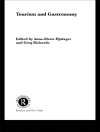How do we describe ourselves?
Where have we, do we, will we, live our lives?
Why are the differences between people a source of tension?
How can social change occur?
Social geography can assist in addressing these questions. It provides ways of understanding and living in our contemporary world.
Providing students with the resources to understand both the theoretical and empirical approaches social geographers take when investigating social difference, this text outlines key theoretical approaches and traces the core geographies of difference: class, gender, race/ethnicity, and sexuality. It concludes by showing how geographers work across these ideas of difference to understand questions of identity, power and action.
Using illustrative examples from around the world, Social Geographies includes:
– Individual chapters on the main theoretical approaches to difference
– Individual chapters on the key concepts of identity, power and action
– Reviews of the core literature, with suggestions for further reading
– Biographies of key contemporary social geographers
– Glossary of key terms
For students beginning human geography courses, or in social geography modules, this book is the essential primer.
Cuprins
PART ONE: INTRODUCTIONS AND NEGOTIATIONS
Contemporary Social Geographies
Perspectives on Difference, Identity, Power and Action
Contemporary Social Geographies
Negotiating Science, Theories and Positions
PART TWO: CATEGORIES OF SOCIAL DIFFERENCE
Class
Gender
Race and Ethnicity
Sexuality
PART THREE: ACROSS AND BEYOND SOCIAL DIFFERENCE
Identity
Power
Social Action
PART FOUR: CONCLUSIONS AND OUTLOOKS
Conclusions and Future Directions
PART FIVE: INDIVIDUAL SOCIAL GEOGRAPHIES
Andrew Herod
Jo Little
Kay Anderson
Larry Knopp
Karen M Morin
Michael Woods
J K Gibson-Graham
Despre autor
Ruth Panelli is in the Department of Geography, University College London












